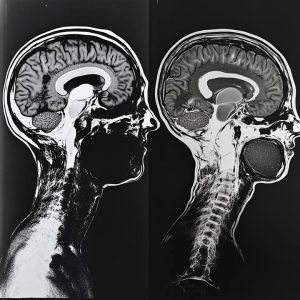
Experts noted that there is a significant difference in the hypothalamus. This brain region regulates body temperature, blood pressure, sleep, sex drive, and appetite.
According to the study, overweight and obese individuals have larger volumes of the hypothalamus, particularly in areas that control appetite through hormone release. However, it is still unclear whether these structural changes are a cause or an effect of weight changes.
Animal studies have shown that a high-fat diet can lead to inflammation in the hypothalamus, causing insulin resistance and obesity.
This inflammation can also impact satiety, causing animals to require more food to feel full. The researchers suggest that a similar process may occur in humans, where a high-fat diet triggers inflammation in the appetite control center and disrupts the recognition of satiety and blood sugar regulation, ultimately contributing to weight gain.
The researchers propose that inflammation may explain the observed increase in hypothalamus size in overweight and obese individuals, suggesting that the body responds to inflammation by increasing the size of immune cells in the brain, known as glia. Neuroplasticity in the brain allows for changes in appetite control and eating behavior in response to dietary habits and environmental cues.
Peoplesmind
